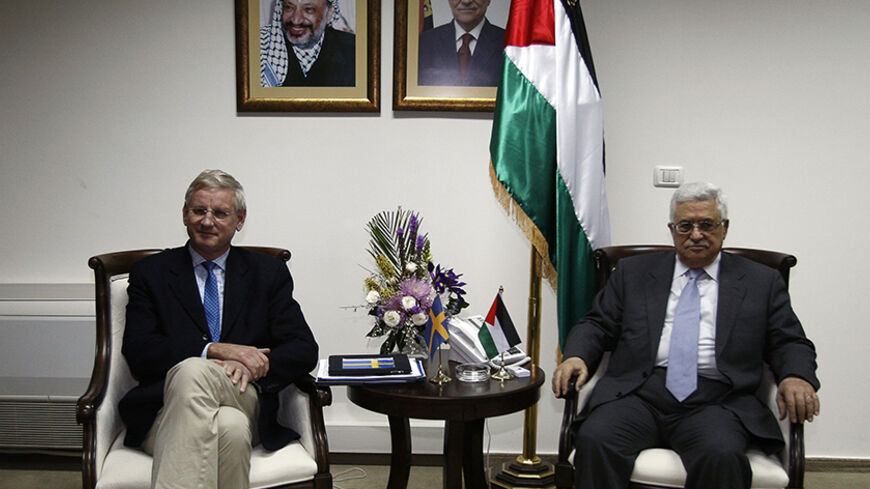"But why Oslo?" US President Bill Clinton asked Israeli President Shimon Peres when the Israeli leader broke the news to him about the 1993 agreements. The answer is still relevant today. In an era in which imposing peace is impossible, facilitating peace is an important element of peace diplomacy. Such facilitation is about the creation of the right environment and conditions for negotiations as well as socioeconomic assistance in a post-conflict process.
Medium-scale powers, not superpowers, have the best chance of playing a facilitating role. These are countries with the soft power of good economies and a tradition of peacemaking and human rights — those who can be honest brokers without intimidating the parties concerned. This is probably what the new Swedish Prime Minister Stefan Lofven had in mind when he announced Oct. 3 that Sweden would recognize a Palestinian state. According to diplomatic sources in Stockholm, the move was intended both to place the new government on the EU policymaking map and to serve as a wake-up call to the rather dormant European partners.



